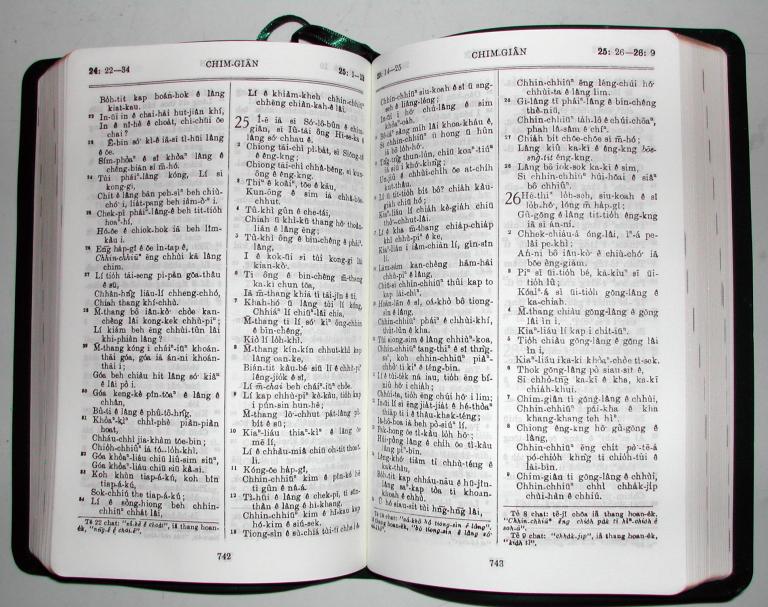- Joined
- Nov 2, 2012
- Messages
- 7,788
- Points
- 113
“His head is as the most fine gold, his locks are bushy, and black as a raven.”
Song of Solomon 5:11
Comparisons all fail to set forth the Lord Jesus, but the spouse uses the best within her reach. By the head of Jesus we may understand his deity, “for the head of Christ is God” and then the ingot of purest gold is the best conceivable metaphor, but all too poor to describe one so precious, so pure, so dear, so glorious. Jesus is not a grain of gold, but a vast globe of it, a priceless mass of treasure such as earth and heaven cannot excel. The creatures are mere iron and clay, they all shall perish like wood, hay, and stubble, but the ever living Head of the creation of God shall shine on for ever and ever. In him is no mixture, nor smallest taint of alloy. He is for ever infinitely holy and altogether divine.
The bushy locks depict his manly vigour. There is nothing effeminate in our Beloved. He is the manliest of men. Bold as a lion, laborious as an ox, swift as an eagle. Every conceivable and inconceivable beauty is to be found in him, though once he was despised and rejected of men.
“His head the finest gold;
With secret sweet perfume,
His curled locks hang all as black
As any raven's plume.”
The glory of his head is not shorn away, he is eternally crowned with peerless majesty. The black hair indicates youthful freshness, for Jesus has the dew of his youth upon him. Others grow languid with age, but he is for ever a Priest as was Melchizedek; others come and go, but he abides as God upon his throne, world without end. We will behold him to-night and adore him. Angels are gazing upon him—his redeemed must not turn away their eyes from him. Where else is there such a Beloved? O for an hour's fellowship with him! Away, ye intruding cares! Jesus draws me, and I run after him.
Song of Solomon 5:11
Comparisons all fail to set forth the Lord Jesus, but the spouse uses the best within her reach. By the head of Jesus we may understand his deity, “for the head of Christ is God” and then the ingot of purest gold is the best conceivable metaphor, but all too poor to describe one so precious, so pure, so dear, so glorious. Jesus is not a grain of gold, but a vast globe of it, a priceless mass of treasure such as earth and heaven cannot excel. The creatures are mere iron and clay, they all shall perish like wood, hay, and stubble, but the ever living Head of the creation of God shall shine on for ever and ever. In him is no mixture, nor smallest taint of alloy. He is for ever infinitely holy and altogether divine.
The bushy locks depict his manly vigour. There is nothing effeminate in our Beloved. He is the manliest of men. Bold as a lion, laborious as an ox, swift as an eagle. Every conceivable and inconceivable beauty is to be found in him, though once he was despised and rejected of men.
“His head the finest gold;
With secret sweet perfume,
His curled locks hang all as black
As any raven's plume.”
The glory of his head is not shorn away, he is eternally crowned with peerless majesty. The black hair indicates youthful freshness, for Jesus has the dew of his youth upon him. Others grow languid with age, but he is for ever a Priest as was Melchizedek; others come and go, but he abides as God upon his throne, world without end. We will behold him to-night and adore him. Angels are gazing upon him—his redeemed must not turn away their eyes from him. Where else is there such a Beloved? O for an hour's fellowship with him! Away, ye intruding cares! Jesus draws me, and I run after him.


 . Outside of these books and chapters mentioned, no single chapter of any book in all of the New Testament mentions the necessity of the shed blood more than Hebrews 9: The priest could enter into the Holy of Holies only by means of the blood (7), but today it is not by the blood of animals but by Christ’s own shed blood that we can enter into the Holy of Holies (12) which means being in the presence of God, and since animal’s sacrificial blood (13) didn’t really cleanse but covered, we needed perfect sacrificial blood which was supplied by Jesus Christ (14).
. Outside of these books and chapters mentioned, no single chapter of any book in all of the New Testament mentions the necessity of the shed blood more than Hebrews 9: The priest could enter into the Holy of Holies only by means of the blood (7), but today it is not by the blood of animals but by Christ’s own shed blood that we can enter into the Holy of Holies (12) which means being in the presence of God, and since animal’s sacrificial blood (13) didn’t really cleanse but covered, we needed perfect sacrificial blood which was supplied by Jesus Christ (14).